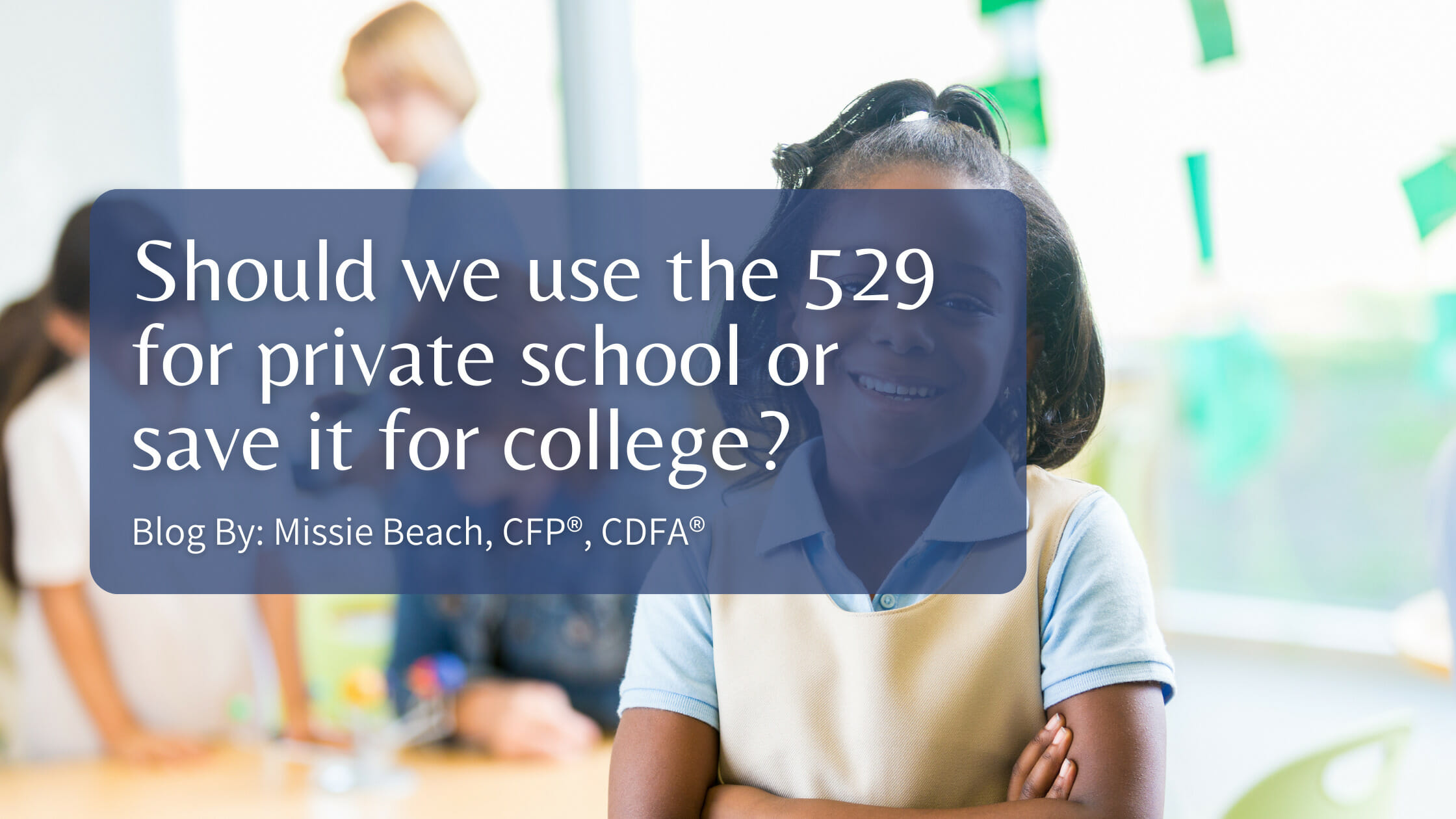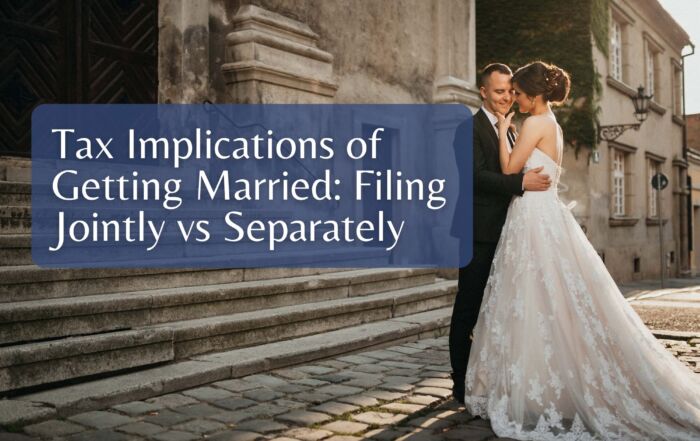Should we use the 529 for private school or save it for college?

As with many financial planning topics, it’s a classic case of “it depends.” The decision whether or not to use 529 for private school will be based on your individual circumstances, family values, and personal preferences. Let’s look at these considerations in more depth. For the purpose of this discussion, we’ll assume that the hypothetical 529 account and all education costs will be funded solely by a child’s parents and that no grandparent or other contributions will be factored into the mix.
The Atlanta metro area presents educational challenges for many families as some segments of the public school system can fall short of expectations. Some families may feel that private school is the only suitable option in their area and may look to the 529 plan to help pay for it.
Some starting questions to ask yourself:
- What is the current balance of your 529 plan? Will it completely cover projected college costs? Will there be excess funds available for private schools that wouldn’t impact future college funding?
- What is the cost of the private school(s) your children might attend? In the Atlanta metro area this can vary widely from $15k per year up to just shy of $40k per year for tuition, books, and fees. The more competitive the school, the higher the price tag.
- What are the educational goals of your children? This is probably the most difficult question to answer, especially when your children are young and still developing personalities, asserting independence, and growing into who they will eventually become as adults.
- There are tax benefits associated with a 529 plan. The Georgia 529 plan offers taxpayers up to a $8k deduction per beneficiary on their Georgia tax return each year for contributions made. 529 funds grow tax-free, and distributions are tax-free when taken out for qualified education expenses. How will using the plan to fund private education impact your tax benefits?
Recommendations for Using the 529 Plan
Once you know the answers to those questions and have a clear picture of the financial commitment required for private education, here are some recommendations for how to use the 529 plan:
- Plan for college first. Only when you have adequately set aside funds for your child’s college needs, should you then focus on paying private school with the 529 plan.
- If you have a newborn and are considering private school, in most cases it isn’t realistic to save in advance for private school. Time just isn’t on your side, and there aren’t enough years for growth. Plan on paying private school tuition out of current cash flow.
- Although private school tuition is most commonly paid with current cash flow, consider funding the Georgia 529 plan with a maximum $8k to receive the Georgia income tax deduction ($8,000 * 5.75% = $460 GA tax savings) each year. Just fund the 529 with $8k temporarily and make a qualified withdrawal a few days later to pay tuition. $460 in Georgia tax savings (per beneficiary) is worth it to most people.
Ultimately, the decision of whether or not to use your 529 plan for private school is a personal one. There is no right or wrong answer. Consider your financial situation (especially your cash flow), your child’s education goals, and the cost of private schools in your area when making your decision.
Have more questions? Contact Us
Missie Beach, CFP®, CDFA®
Senior Financial Advisor
Share This Story, Choose Your Platform!
Wiser Wealth Management, Inc (“Wiser Wealth”) is a registered investment adviser with the U.S. Securities and Exchange Commission (SEC). As a registered investment adviser, Wiser Wealth and its employees are subject to various rules, filings, and requirements. You can visit the SEC’s website here to obtain further information on our firm or investment adviser’s registration.
Wiser Wealth’s website provides general information regarding our business along with access to additional investment related information, various financial calculators, and external / third party links. Material presented on this website is believed to be from reliable sources and is meant for informational purposes only. Wiser Wealth does not endorse or accept responsibility for the content of any third-party website and is not affiliated with any third-party website or social media page. Wiser Wealth does not expressly or implicitly adopt or endorse any of the expressions, opinions or content posted by third party websites or on social media pages. While Wiser Wealth uses reasonable efforts to obtain information from sources it believes to be reliable, we make no representation that the information or opinions contained in our publications are accurate, reliable, or complete.
To the extent that you utilize any financial calculators or links in our website, you acknowledge and understand that the information provided to you should not be construed as personal investment advice from Wiser Wealth or any of its investment professionals. Advice provided by Wiser Wealth is given only within the context of our contractual agreement with the client. Wiser Wealth does not offer legal, accounting or tax advice. Consult your own attorney, accountant, and other professionals for these services.





